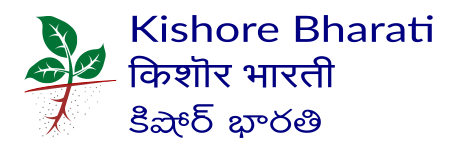Our engagement with the dais helped focus attention on some of the critical issues of reproductive health. A village-level study entitled, “Phool To Jharte Hi Hain” (“Flowers are Bound to be Shed) revealed that the high infant mortality rate had been accepted as part of women’s destiny, rather than being realted with poverty leading to malnutrition, unhygienic conditions and lack of public health services. All this raised problems relating to reproductive health, particularly women’s lack of scientific understanding of reproduction and how they become pregnant and babies are born. The KB Group researched and evolved simple methods of pursuing the monthly reproductive cycle and organized training camps for women. The women learned to record their monthly cycle in a calendar on their own, thereby identifying their fertile periods. However, this scientific method did not give them the control obvr the decision to become pregnant or not since it was the man who had the ultimate control. THis realization of inequality in sexula relations led to a radically transformative discourse on gender equality and involved men too. All this is recorded in a detailed bound report entitled, “Janjeeron Ko Todkar” (“Breaking the Shackles”), published by Kishore Bharati in 1990 (available on request).
Iconic One Theme | Powered by Wordpress
